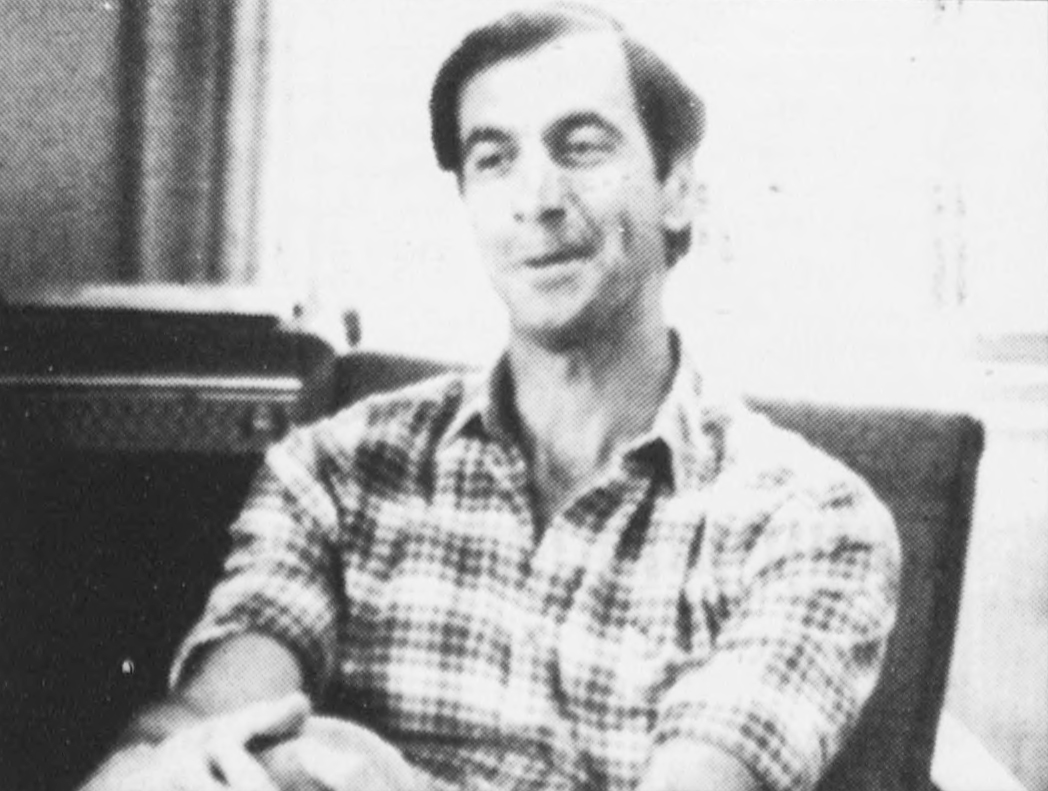As Stanford’s longtime associate dean of student affairs, Norm Robinson, PhD ’74, helped to craft residential education policies in which faculty, students, and student-affairs staff work together to make housing a learning environment for diversity, individual and group responsibility and the healthy formation of identity.
On Robinson’s watch, Stanford in 1990 become one of the first U.S. universities to open its married-student housing to unmarried couples including gay men and lesbians.
I’m from New England. After I got my BA from Bowdoin in 1963, I had no idea what I wanted to do. I went to Columbia for an MBA, then took a job with one of the Big 8 accounting firms. After about a month of work I realized I had made a huge mistake.
I asked myself, “What have I done that I really enjoyed?” I thought back to my summer jobs. I’d been a camp counselor, a swimming instructor. At Columbia, I’d been a resident staff counselor – basically an RA – in an undergrad men’s dorm, which was probably the highlight and most important aspect of my Columbia experience.
Out of nowhere I thought I’d like to be a school psychologist. How presumptuous of me: I’d taken one psych course. But the School of Education’s doctoral program in counseling psychology – which doesn’t exist any more – not only admitted me but also awarded me a three-year National Defense Education Act fellowship.
I didn’t know anything about the theoretical orientation of the counseling program. I did know, however, that you could swim outdoors at Stanford all year round.
Much, much later, I thought, “What a gutsy move on Stanford’s part – the fact that they admitted me. They took a chance.” I will be forever grateful to Carl Thoresen and John Krumboltz for that leap of faith.

Joe So/The Stanford Daily
To help pay my bills, I started working for the dean’s office as an RA in Toyon Hall for two years, just as it went coed. After that, Stanford offered me a job as director of Florence Moore residence hall the year that it went coed. Twenty-three years later I retired as the Associate Dean of Student Affairs emeritus.
Most of my classmates had had experience as school counselors. Pretty much the expectation was that if you got a master’s degree, you’d go to work as a counselor or therapist. If you got a PhD, like me, you’d become an educator.
I didn’t go that route. But I did become an educator of sorts. I educated in the larger informal classroom of Stanford residential life. I used to tell the RAs, “You’re not hall monitors. You’re all educators.”
The department’s theoretical orientation was behavioral, not psychoanalytic. It was something I believed in, though I couldn’t have articulated it before I studied it. We learned to identify objectives. I then identified courses of action that would lead to those objectives. What are the antecedents that lead to maladaptive behaviors? What are their consequences?
That’s something that, obviously, since I can still remember it, stuck with me and has helped me through all these years of working.
Changing people’s attitudes? Maybe. But if you help individuals to change their behavior – get them to stop discriminating, let’s say – maybe their attitudes will then change. Attitudes are secondary to behavior. The other person doesn’t care why he’s being discriminated against. If you get rid of maladaptive behavior, maybe attitude change will follow.
My first or second year of the PhD program included a practicum in schools. It engendered a fair amount of discontent: Who knew what the approach of the master counselor would be? We wanted to be supervised more directly by our faculty here at Stanford.
We got the money to start the Stanford Institute for Behavioral Counseling. Maybe because I had an MBA, people thought I could organize a business. We were given an old house on Alvarado Row. We retrofitted it with one-way mirrors and treatment rooms, and a video camera.
My dissertation research involved methodologies to teach students to be more assertive. We tested them both before and after showing them a video of people behaving assertively – refusing unreasonable requests. Or after giving them something to read about the subject. Or after a combination of the two. I trained undergrads to be raters, and I videotaped the whole thing. Videotape was a real production back then.
Well, I got the tapes back … and there was audio, but looking at the screen was like looking at a snowstorm. There was nothing.
I called 3M, the manufacturer of the tapes. They asked, “Do you have the serial number of the tapes?” Then they said, “That was a faulty batch of tapes. We’d be happy to replace them free of charge.”
Carl Thoresen was my adviser. I spent the most nerve-racking weekend of my life imagining my conversation with him about how he was going to tell me to do it over.
I was going to tell him that I was just going to get an ABD. After all, I already had a job, working full time at FloMo.
He said, “Just write up what you’ve got. Sometimes these things happen.”
I always appreciated that injection of “Life happens.”
After his retirement from Stanford in 1993, Norm Robinson became executive director of ARIS, Santa Clara County’s primary HIV/AIDS prevention and support service agency. He has consulted and served as interim executive director at a dozen nonprofits including Filoli, Peninsula Volunteers and the Alzheimer’s Activity Center.
He remains active at Stanford, leading trips for the Stanford Alumni Association’s Travel/Study program as well as co-chairing the program committee and serving on the board of directors of the Stanford Historical Society. In 2016, he received the Stanford Associates’ Award of Merit for exceptional volunteer service to the university.
Read Robinson’s oral history conducted by the Stanford Historical Society.
-- Barbara Wilcox
Top photo: Sunny Scott
